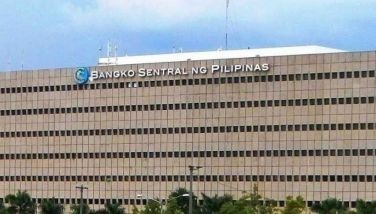Are we hopeless?

There is a brooding sense of panic and resignation among some senior citizens, my age and older, over the state of the country today. They feel time is running out and they will not see the day when every Filipino can be proud of our country again… not leave for abroad at the first opportunity.
In e-group after e-group, the sentiments I have been reading for some time now speak of sheer frustration and intense worry about the future of their grandchildren. These are former entrepreneurs and retired business executives and they think that the way things are going, we are headed to the bottom if we aren’t there yet.
They see Vietnam speeding past us and they know why. Lack of vision by our leaders and pervasive corruption in government down to the barangay level. They see no sense of nationhood and common good among our people. And they wonder if change can happen or if we are hopeless.
Corruption is a common explanation and complaint. Someone gave an example of corruption.
“An LGU official asked for one condo unit before giving the developer a building permit. Now I heard the official is asking for one floor in the building. A top executive of a big developer said when they were planning to build a hotel, he told him, anyway we are both businessmen, just add 20 percent of the project cost for me.”
“But,” one of my friends said, “the leaders of all Asian countries are corrupt with the exception of Singapore. Please explain why countries even more corrupt than us in Southeast Asia have left us behind. The Thai and Malaysian leaders are corrupt, the president of Vietnam recently resigned due to corruption, but all these countries that were poorer than us have left us behind.
“The politicians of Japan and South Korea are corrupt, practically all the past presidents of South Korea during the last 50 years have landed in jail due to corruption. But how come South Korea, which used to be very poor, is now one of the richest and most progressive countries in Asia?”
One related: “My sons went to Vietnam in 1997 and it was a very poor country with bad roads, it took them five hours to reach a beach resort. I had transactions with ABB, a Swiss/Swedish firm, 30 years ago and the Italian fellow based in their HongKong office that I was dealing with was trying to sell power plants to Vietnam, but the country was so poor, it had no money to pay for the plant.
“Now companies moving out of China are going to Vietnam instead of us. Vietnam rolled out the welcome mat and foreign investors flooded into Vietnam and financed the building of the infrastructure, factories, etc.”
Here is another example:
“We used to have a huge garment industry, there were companies employing tens of thousands of workers plus housewives in their houses in Bulacan, Batangas, and other provinces working in their own homes on contract doing embroidery work.
“We priced ourselves out of the market with our minimum wage and so, we now have the highest unemployment and poverty rates in Southeast Asia.
“Bangladesh, once one of the poorest countries in the world, is now progressing rapidly mainly due to garment manufacturing and will soon overtake us in per capita income.”
In tourism, we have a COMPARATIVE ADVANTAGE. It is a low-hanging fruit, Palawan has been declared the most beautiful island in the world and Boracay has been voted by many travel magazines as one of the top beaches worldwide. Why then are we at the bottom of the deck when it comes to tourism in Southeast Asia?
The secret is a supportive government. The Thai government developed Phuket, the Malaysian government developed Langkawi Island, the Indonesian government developed Bali. Our private tourism entrepreneurs don’t get support from the government, even if only to help collect from insurance to rehabilitate typhoon-damaged facilities.
No wonder even our own young people from the middle class who are not doing badly, but can migrate, leave the country for Canada, Australia, or the US to give their children a future.
Said one of my old friends: “We will lose our best to Vietnam, to our ASEAN neighbors … not just to the world…. To do business here is like walking in mud… the government is more incompetent than ever. We are left with the bottom of competence in our society… Everything is difficult. Everything is delayed.
“And look at the returns of corporations… Get the average return of the top 10… it is below 10 percent... maybe around eight… terrible returns… the numbers look big because the equity is big.
“Dealing with everyone is difficult… everyone’s priority is the cell phone and answering Instagram and all kinds of shit… The camel caravan… Back to the speed of a carabao… yet everyone is happy.”
It is a question of leadership. Our politicians only care about improving the economic status of their family and friends. Our politicians, mostly lawyers, have no idea how to lead the country for economic development. They only make more restrictive rules… more red tape that encourages corruption even more. Kanya kanyang raket.
I can only see Ricky Razon and Ramon Ang, both non-politicians with the track record, grit, and foresight who can lead us to prosperity. But they are not crazy to run in our elections that only clueless celebrities and moneyed corrupt politicians can win.
I think our problem is that we have lowered our standards. Puede na. We are content to be the last in everything. Our young people are last in math, reading, and science. We are last in foreign direct investments among the original ASEAN five.
An OCTA survey found out 76 percent of Filipinos think we are in the right direction. Then SWS released a survey showing 51 percent rated themselves poor, 30 percent rated themselves borderline and only 19 percent rated themselves “hindi mahirap.” How can we blame non-performing politicians when people seem content?
Maybe Filipinos are so used to suffering and being poor. The psychological defense mechanism is to be hopeful even if the situation is hopeless. Those who become restless just leave. Sad.
Boo Chanco’s email address is [email protected]. Follow him on Twitter @boochanco
- Latest
- Trending




























